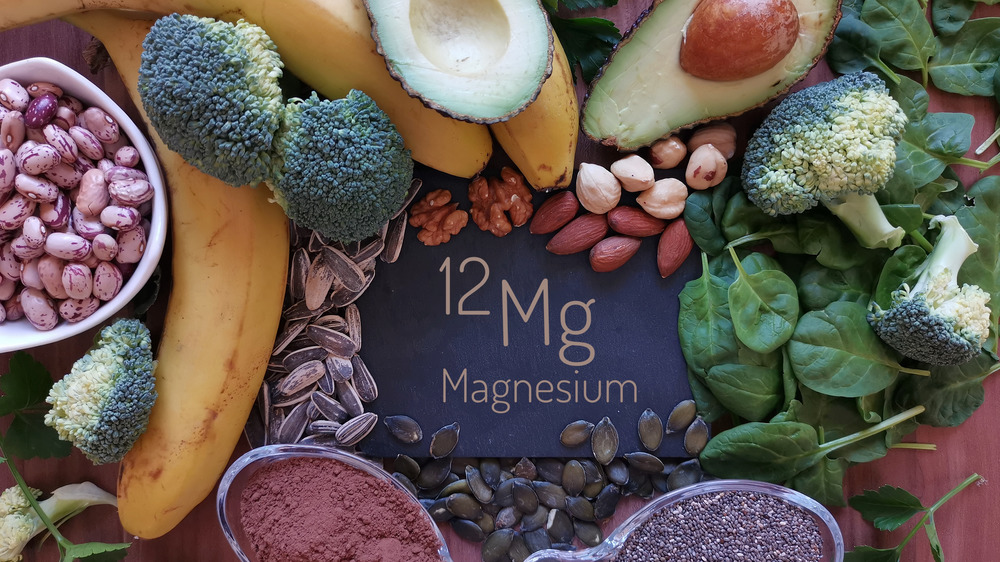This Is What Magnesium Really Does For Your Body
Your friends have been talking about it, or you have seen social media posts praising it. However you've heard, there is definitely a noticeable buzz around magnesium. The trending mineral has been linked to helping headaches, supporting the immune system, improving cardiovascular health, and even treating depression (via Harvard Health Publishing). Interestingly, magnesium is necessary for over 300 biochemical reactions in the body, including maintaining normal nerve and muscle function as well as keeping bones strong (via Medline Plus). Let's dive into some of these physical responses a bit more.
According to Healthline, magnesium supports a healthy heartbeat by naturally competing with calcium, which stimulates the heart's muscle fibers to contract. Magnesium counters this effect, causing the fibers to relax and the heart's rhythm to steady. When there is a deficiency in magnesium, calcium can overstimulate the heart, causing an irregular heartbeat or arrhythmia. Just as magnesium helps to relax the heart muscle, it relaxes all other muscles in the body, too. Magnesium acts as a calcium blocker, which decreases muscle cramping and spasms.
Magnesium has many other benefits, too
According to the American Migraine Foundation, magnesium is frequently used for migraine prevention and treatment in the form of magnesium oxide. The supplement (in pill form) is used to prevent migraines at a dose of 400-500 mg per day, while during an attack, it is given intravenously as magnesium sulfate. Research suggests that taking a daily magnesium supplement can ease migraines in those who are predisposed to them.
Many studies, like this one published in the German journal Fortschritte der Medizin, show that magnesium may improve sleep quality by helping you relax. Research shows that by binding to gamma-aminobutyric (GABA) receptors, which helps calm down nerve activity, magnesium may promote better sleep (via Neuroscience). Another study suggests that magnesium can help alleviate symptoms of depression, as it plays a role in brain function and mood (per Medical Hypotheses).
The mineral is by no means a miracle cure for any illness or ailment. However, according to Scientifica, up to 68 percent of Americans are magnesium deficient, which can present some problems. If you suspect you are lacking magnesium, check with your doctor for the best way to address your concerns.


